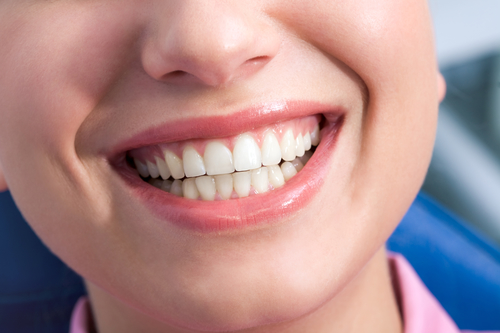What’s The Best Way to Floss
We all know we should floss, but it can be tough. Part of this is because flossing can feel like an extra task in an already busy day, but it...

Many patients are unaware of what exactly gum recession entails until they hear the words from their dentist at an exam.People can also have receding gums without realizing it because the recession process happens so gradually. While it may be common, it can also lead to tooth loss if not appropriately treated.
Inform yourself with everything you need to know about receding gums including risks, symptoms, and prevention tips from our Macomb gum recession experts.
Gum disease.
Periodontal disease, more commonly known as gum disease, is the leading cause of gum recession. There are different types of gum disease that all destroy healthy gum tissue and the surrounding bones that are responsible for holding the teeth in place. Tooth loss is the most severe result of these bones and tissues being destroyed.
Poor oral health.
Poor oral hygiene habits is another common cause of gum disease. When you do not adequately brush and floss your teeth regularly, plaque on the teeth turns into calculus. This hard substance that builds up on the surface and between the teeth can only be removed with a professional cleaning. Insufficient oral hygiene in combination with avoiding professional dental cleanings results in the perfect recipe for gum recession.
Aggressive brushing.
Patients are often surprised to learn that they are brushing their teeth too hard. Using more force doesn’t necessarily mean a cleaner smile. Aggressive tooth brushing can be just as damaging to your oral health as not brushing your teeth at all. Use gentle pressure when brushing to avoid wearing away tooth enamel and causing the gums to recede.
Genetics.
Studies have shown that your genetics play an essential role in our oral health. In fact, some patients are more likely to also get gum disease than others too. Discussing oral health with your family members is a great way to know what your genetic makeup consists of.
Hormones.
Specific hormonal changes can result in an increased likelihood of gum recession, especially for women. These hormonal changes are most likely to occur during puberty, pregnancy, and menopause.
Bruxism.
Clenching or grinding the teeth, either during the day or absentmindedly while you sleep, is known as Bruxism. A common cause of gum recession, grinding and clenching your teeth puts a significant amount of pressure on the teeth, leading to bone loss and gum recession.
Tobacco.
Habitual tobacco users are more likely to suffer from gum recession than someone who does not use tobacco products. These products can cause a buildup of plaque on the teeth which can’t be removed by brushing at home. The excessive plaque buildup encourages and promotes gum recession to begin.
Misaligned teeth.
When teeth are not properly aligned, it can sometimes lead to gum disease. Too much pressure on the gums and supporting bones can occur, and this pressure can, in turn, lead to gum disease.
The most common symptoms of receding gums include:
Deep cleaning. The recommended treatment method used for gum recession will depend on the severity of the recession. Sometimes, gum recession can be treated by your dentist through a deep cleaning treatment. During this cleaning, the excessive buildup of plaque and tartar is removed. The root area is then smoothed so that bacteria can no longer attach itself easily. The final step in the deep cleaning process often involves a prescribed antibiotic to rid the mouth of any leftover bacteria that may be harmful.
Medications. Other medications may be used to treat the underlying problem that is causing your gum recession. These medications typically include:
Surgery. Unfortunately, deep cleaning isn’t always a treatment option for severe gum recession. When the recession damage is too severe, surgery is sometimes necessary. The most common surgical procedures to treat gum recession include flap surgery, pocket reduction, regeneration, and soft tissue grafting. One of these treatment options will likely be recommended to you depending on the severity of your gum recession.
Prevention is the best way to avoid gum recession altogether. Practicing good oral health habits, including brushing twice daily and flossing every day, will keep your entire mouth healthy. Regular dental checkups and professional cleanings are also imperative to prevention, so schedule your next appointment with Hoffman Dental Care today!